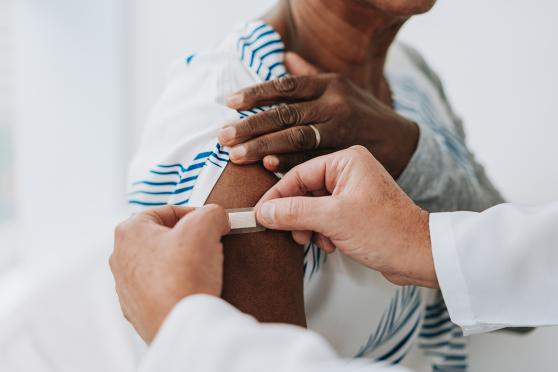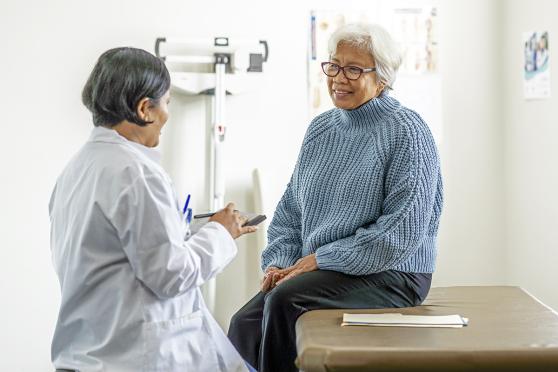5 pressing questions about bladder leaks
Don’t let bladder issues ruin your day. Here’s what you need to know to get help.

Dear Dr. Heidi,
Lately, I’ve started to feel a bit of discomfort when it comes to my bladder. I have the urge to go often, and sometimes I leak a little when I laugh, cough, or sneeze. Do you know why this is happening? What can I do to help it? —Rose, 72
Dear Rose,
Having bladder issues is nothing to be ashamed of. In fact, up to one-third of U.S. adults have this problem. Unfortunately, most people don’t tell their doctor, so they don’t get help. That’s too bad, because there are more ways than ever before to treat this very common condition.
Isn’t this just part of aging? Though problems with bladder control — aka urinary incontinence (UI) — do happen more as we age, men and women of all ages can (and do) have bladder troubles. There are a few types of UI:
- Urge incontinence is a sign of overactive bladder (OAB). It makes people feel a sudden, urgent need to pee, which sometimes leads to leaks. This problem happens mostly in men and older women.
- Stress incontinence results in leaking during laughter, coughing or sneezing, exercising, or lifting. It’s most common in women who’ve had a baby. It sometimes happens along with OAB.
- Overflow incontinence happens mostly in men with an enlarged prostate. Here, the bladder won’t empty fully, which can lead to ongoing dribbling.
What causes it? Sometimes the muscles of and around the bladder get damaged (by having a baby or an enlarged prostate, for example). Other times, those muscles get too weak to work well. Or, another health condition like a bladder infection, diabetes, or a kidney issue can cause troubles. Your doctor can help pinpoint the problem so a solution can be found.
“Having bladder issues is nothing to be ashamed of. In fact, up to one-third of U.S. adults have this problem.1”
Can I use any home remedies? Kegel exercises are a good idea for women and men. They can make bladder muscles stronger to prevent or ease problems. To do them, gently tense the muscles you would squeeze if you were trying to stop peeing. Hold 10 seconds, then relax 10 seconds. Repeat the exercises three times, a few times a day. There are certain products that may help with symptoms of incontinence. Use your $30 quarterly over-the-counter benefit* to save money on incontinence protection products. Visit www.ibxmedicare.com/otc to view a complete list of over-the-counter products, and be sure to discuss with your doctor which is right for you.
Should I drink less? You shouldn’t reduce what you drink during the day — your body needs water! — but you should try to cut back on alcohol or cut it out entirely. Caffeinated drinks and foods, as well as acidic juices, can also aggravate the bladder and make problems worse. Water, of course, is always an ideal choice, as it won’t add any calories to your daily total, and there’s no mystery about what’s in it!
How do I tell my doctor? Remember how common this is? You won’t be the first person to bring issues like these up. Just say “I’m having leaks/dribbling/trouble peeing/etc.,” and let your doctor take it from there. You’ll likely need a few exams and tests, and you may have to keep a simple “bladder diary.” Then, at your next visit, you can discuss treatment options so you can get back to living life to the fullest!
Bladder problems are common, so don’t be shy when meeting with your doctor! Be sure to discuss any symptoms you might have, and ask about the options available to you.
Dr. Heidi Syropoulos joined Independence Blue Cross in 2015 after practicing internal medicine and geriatrics for 30 years. She is a subject matter expert on clinical medicine and health care delivery for the Medicare team.


